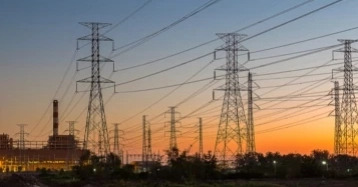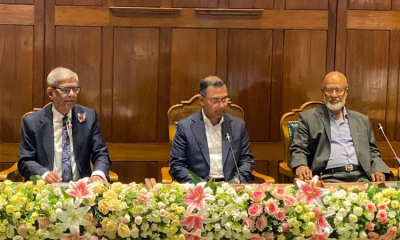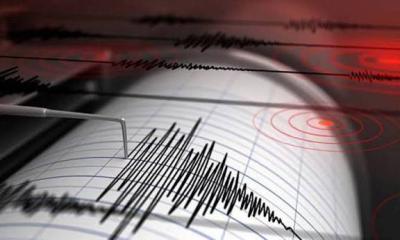In a recent statement, State Minister for Power, Energy, and Mineral Resources, Nasrul Hamid, hinted at a forthcoming increase in electricity tariffs starting from March to counter the widening gap between production costs and sales revenues, reports UNB.
This move aims to alleviate financial pressures on the Bangladesh Power Development Board (BPDB) and the national economy.
"We`ve to adjust power tariff at both the retail and bulk level to cover the production cost. However, gas prices may be adjusted only for the power plants," Hamid declared, assuring that the impact on retail consumers would be kept to a minimum.
Sources within the government reveal plans to implement a 5 percent hike in bulk electricity prices and a 3 percent increase at the retail level through an administrative order, bypassing traditional regulatory hearings.
This decision comes after months of deliberation among top policymakers, torn between raising tariffs or leveraging the banking system to issue more bonds.
The dilemma underscores the challenge of managing the substantial financial deficit incurred by the BPDB, with current electricity production costs nearly double the selling price.
According to the BPDB’s Annual Report 2022-23, the fiscal year saw the production of 87,024 million kilowatt hours of electricity at a total cost of TK 986.46 billion.
Its per unit production cost was Tk 11.33, while it was selling electricity at Tk 6.7 per unit — incurring a loss of about Tk 4.63 per unit.
This imbalance has led to a staggering loss of Tk 47,788 crore for the fiscal year, as the government grapples with purchasing power from private and international sources at significantly higher rates.
With this huge loss, the government has been facing great trouble as it has to purchase electricity worth Tk 82,778 crore from private sector power producers, while it generates electricity worth Tk 13,307 crore from its own generation plants.
The annual report also shows that the BPDB’s average per unit production cost from its own plants is Tk 7.63, while it is Tk 14.62 at the independent power producers or IPPs (private sector), at rental plants Tk 12.53, at public plants Tk 6.85, and imported power from India at Tk 8.77.
The government purchases electricity from the private sector and India in dollars.
The disparity in production costs between government and private sector plants further exacerbates the financial strain, with the government incurring a cumulative outstanding bill of approximately $5 billion in the energy sector alone.
Hamid also addressed the critical foreign exchange challenge, stating, "The crisis is not in local currency... But the main crisis is the dollar. We’re not getting dollars from Bangladesh Bank as per our needs," highlighting the sector`s urgent requirement for $1 billion monthly to meet payment obligations.
In response, the government has initiated the issuance of bonds valued at Tk 5,000 crore, potentially rising to Tk 12,000 crore to mitigate some of the financial distress. However, officials acknowledge that this measure, coupled with ongoing subsidies, may not suffice, prompting further considerations for tariff adjustments or additional bond issuances.
As Bangladesh navigates this economic quagmire, the impending decision on electricity tariffs looms large, with potential implications for both the national economy and the everyday lives of its citizens.












-20260217073221.webp)




-20260216115008.webp)














